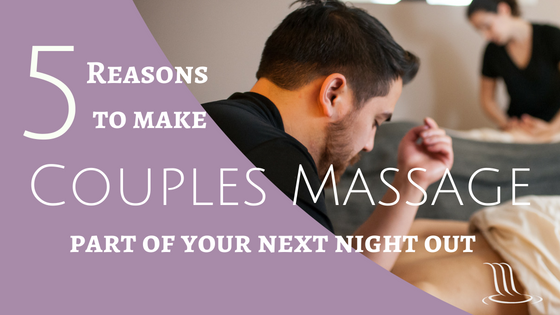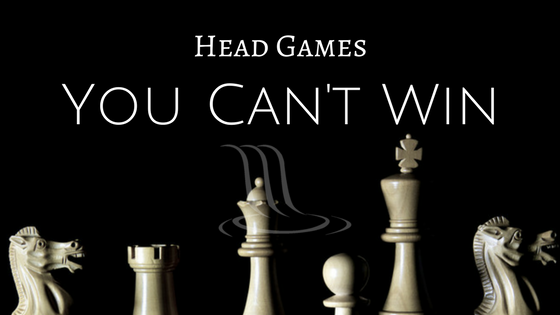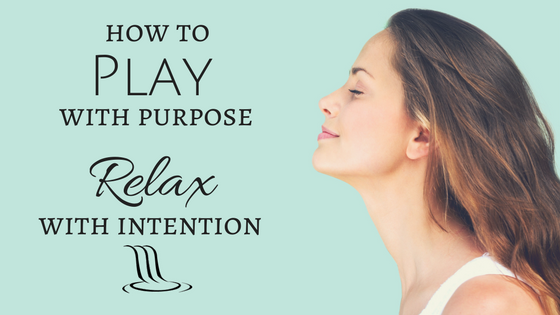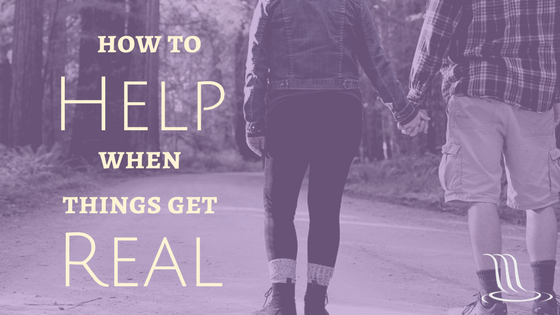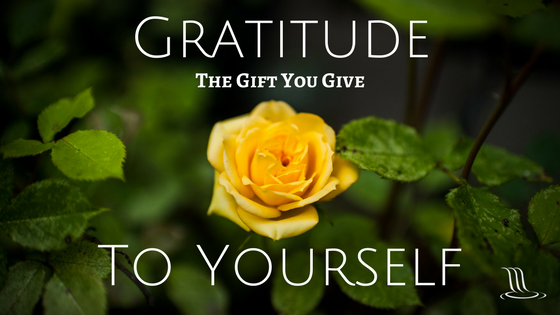When was the last time you went on a date? Dating, especially when you’re in a well-established relationship, can be tough to manage. You’ve heard so many of the other person’s stories. You’ve fallen into familiar patterns that, while reliable and maybe even enjoyable, have made your dating life a little repetitive and boring. What’s more, if you share a household with the other person, it’s all too easy for every-day hassles and worries to intrude on your time together.
If you’re dating someone new, the pressure is on to impress, to help the relationship progress.
These two common dating scenarios have one thing in common: STRESS.
And science has shown that stress generally isn’t fun. Not only that, but it can get in the way of intimate time with your partner.
That’s why we’d like to humbly recommend a modification to your dating routine that could make a huge difference.
Couples massage
To define our terms here, a couples massage is when two people come in for a massage together at the same time in the same room. Each of you get a custom massage from your own massage therapist in a relaxing setting.
There are several benefits to recommend this, beyond just stress relief. These are just a few:
Great value
Couples massage is a great value! Our couples session is significantly less than if you booked two separate sessions. To add even more to the value, every massage includes a free select session enhancement of your choice and a chocolate to enjoy on your way to whatever else the evening holds.
Not spontaneous
Trust us, this is a feature, not a bug. Our couples sessions require some advance planning. This shouldn’t be a surprise when you consider the sheer logistics involved: two therapists with different schedules need to both be available at the same time on the same day. This is one reason we’re one of the few massage clinics in the Seattle area that offer couples massage, and we may be the only one the area that has more than one room devoted to that kind of session.
For this reason, you’ll need to plan your session at least a day or two in advance. Even if you could do a couples massage on a whim, keep in mind that a couples massage as a surprise is not a great idea unless you’re very clear on how well your surprise will be received. People sometimes get anxious about disrobing, bodily functions, or have hang-ups about being touched in this kind of setting. Be sensitive to these possible concerns!
Note: if you wish to book a couples massage with us, we recommend calling us at
425-243-7705
Couples massages can be requested through our online booking, but the booking isn’t complete until you’ve had a phone conversation with us, so you may as well just call.
In the mood
If you’re both game, a couples massage can melt the stress out of date night right away. You’ll both be more able to relax and enjoy whatever your evening holds, and stay resilient if things do go quite to plan.
The ultimate appetizer
We recommend making the massage the first item on your itinerary for several reasons. First, you’ll both be in the same relaxed frame of mind at the beginning of the date. You’ll already be on the same page! Also, since massage increases your mind-body awareness, you’ll be able to fully enjoy whatever sensual experiences lie ahead, whether they be intimate or culinary.
Note: do not come for your massage after drinking alcohol, so you may want to save dinner or drinks for after.
So, consider making a couples massage your new date night tradition! You won’t regret it.
Tom Gunn is the blog editor and marketing director for The Good Life Massage.


